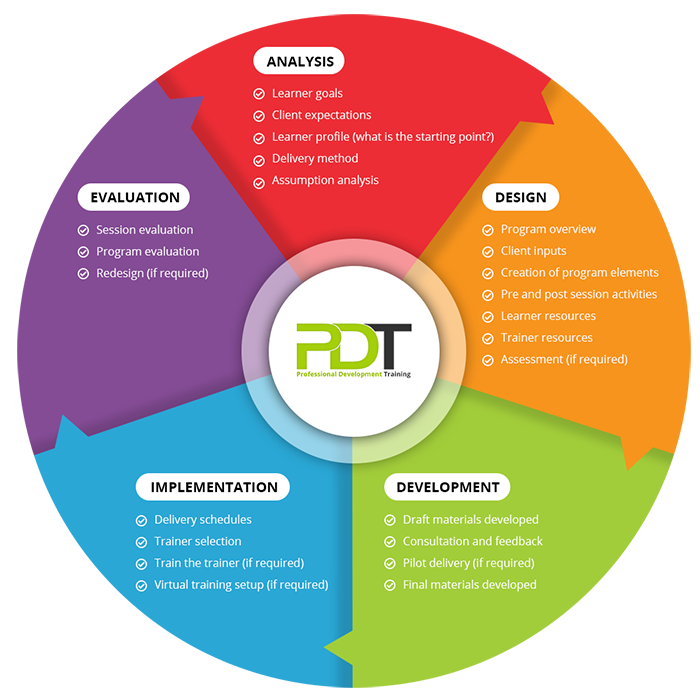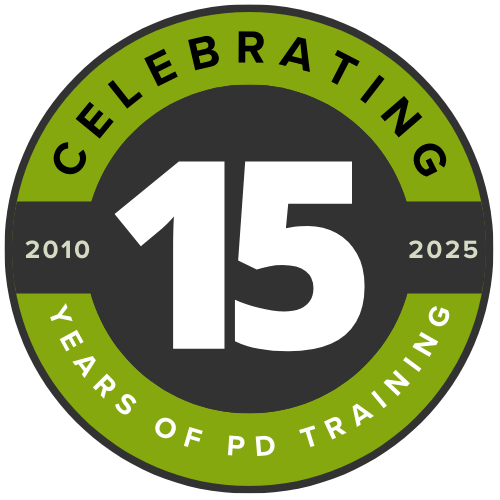Your business is like no other so let’s do things differently!
Work From Home (WFH) in recent times has become more of the norm, this has allowed us to think beyond our four walls with recruitment and look further afield to hire the right talent be it; locally, nationally or internationally. This is awesome right? Maybe not if the output is not what you were expecting?
With dispersed teams comes potentially a new set of challenges; your culture, team performance, working in silos.
Time together in the same room may no longer occur, and if it does, time is precious so will you be spending a whole day together for training? Likely not, however you do want to ensure the time together is productive as possible.
When you do have them all together let’s get the maximum output by implementing and bring to life
So you receive the best from your new team environment and your team feel the best.
PD Training can drive the above sessions and monitor your culture scientifically using REACH Team Culture Profile

Have the right content for the right people to receive the right outcome.
At PD Training we know we have great course materials and great trainers as standard however sometimes the standard courseware, no matter how great is not enough. Sometimes you will require bespoke material written specifically for you and have professional trainers to be able to deliver it.
Well, look no further. We have had some wonderful partnerships creating bespoke materials over the last 11 years and have the outcomes and feedback to prove it.
With all our Bespoke Projects we allocate a clearly defined project team which includes a Project Sponsor, Project Manager, Instructional Designer, Facilitator(s)/Trainer(s) and Operations Coordinator. All the roles vary in responsibility and tasks with the Project Sponsor being the organisation’s overseer of all projects. The Project Manager and their Support are the key contacts for all elements and stages of the project; the Instructional Designer leads the design and development of materials; the Facilitators deliver the training; and the Operations Coordinators complete all the administration work including delivery of documentation, coordinating logistics for Facilitators and other agreed tasks.
PD Training uses a robust project management approach to ensure the delivery of high-quality programs to our clients. The project management methodology is based on the ‘Project Management Body of Knowledge’ (PMBOK) and incorporates stakeholder, resource and risk management strategies to facilitate successful delivery of the end-to-end project, from the first stage of program set up to program scheduling, facilitator resourcing and delivery of each program in a timely and cost-effective manner.
| Industry | Mining, energy, and civil engineering - Seequent |
|---|---|
| Scope |
To design and deliver a leadership course for a global geotechnical software company with offices in six continents. |
| Analysis |
A series of online meetings (the client is based in New Zealand) established the specific learning outcomes. The delivery format was virtual learning given the dispersed nature of the learners. The client wanted the program integrated into the overarching learning strategy for the company. |
| Design and Development |
Training sessions were limited to two hours. The design incorporated the REACH psychometric profiling tool, Pearls of Wisdom micro learning and aligned pre and post session activities. The program was delivered over several sessions, synchronously as virtual learning. Each session was repeated three times to accommodate global time zones. |
| Implementation |
Incorporating 10 different time zones, ranging from GMT -7 to +12. Delivering to10 different countries. Some of the countries only had 1 or 2 participants attending this program, while others had up to 25. Participants were split into groups with similar time zones and each group had a maximum of 10 participants to allow for full interactivity during the training session. An initial session was organised with all participants to test the performance of the online training platform, to ensure that every participant was able to successfully interact with the trainer. Two trainers with extensive online delivery experience and with Leadership training background were allocated to deliver this program. Sessions were mapped to run every 3 weeks, with every session being recorded and made available to the client within 5 days to upload into their LMS for the participants within each group to access for review. A clean version (no participants being present) was also recorded for each session and provided to the client as reference for other employees wanting to go through the Leadership program. |
| Evaluation |
An overview of the program was initially delivered to the Leadership Team. Feedback from this group was integrated into the program before the global roll-out. Electronic feedback forms were provided at the end of each session. A customised feedback form was designed in collaboration with the client and given to the participants at the end of the program to measure the overall impact of the training. |
| Duration |
Training rollout occurred over four months. |
| Industry | Financial services – ANZ, New Zealand |
|---|---|
| Scope |
To design and deliver a critical thinking course customised for a client. |
| Analysis |
A focus group established the reasons why critical thinking was not widely understood as a skill and how it could or should be applied to decision making. The client wanted to see critical thinking adopted as business as usual. |
| Design and Delivery |
The client requested the design to incorporate three scenarios:
The training program was based around a financial services case study that demonstrated the consequences of not applying critical thinking. The content included specific references to the client’s values and risk and compliance framework with activities and scenarios and an extended role play where learners applied a critical thinking process. |
| Implementation |
A full day of Critical Thinking delivered to over 50 participants with a 3-hour follow up reinforcement session. |
| Duration |
Training roll-out occurred over four weeks with reinforcement follow ups 3 months later. |
| Industry | Oil and gas – Origin Integrated Gas Division |
|---|---|
| Scope |
A large gas division of an energy company was going through a restructure and as part of this was implementing a new business operations model based on 13 key business processes and the application of Lean principles. PD Training was to design a series of training modules on the implementation of these core processes that the client would deliver internally. |
| Analysis |
The client required the development of both eLearning and instructor led delivery resources. The client’s staff delivering the training did not have a training background which was a factor in the design. Separate design meetings were held with each of the 13 process owners. |
| Design and Delivery |
For the eLearning modules, PD Training designed the presentation slides and the scripts. The modules were recorded and uploaded onto the client’s LMS. For the instructor led modules, PD Training created presentations and a detailed trainer’s guide. For the project, PD Training assembled a team of six instructional designers to produce the 33 courses. |
| Implementation |
Enlisted 5 extra instructional designers to create and deliver content within a very small-time frame. |
| Evaluation |
Material was delivered on time. |
| Duration |
Project delivery occurred over 2 months. |
| Industry | Specialty Retail - Danone |
|---|---|
| Scope |
To design a three-part customer service excellence program for a manufacturer/supplier of specialised diet and nutrition foods. The sessions were being delivered as part of a week-long training conference bringing staff together across the Asia Pacific. |
| Analysis |
The target learners had not undertaken customer service training previously. Participants often dealt with emotionally charged situations in call-centre environments with many having English as a second language. |
| Design and Development |
The program design had a focus on emotional intelligence, verbal and written communications skills and handling tough situations. The design used a number of client specific role-plays to simulate the range of interactions between customers and staff through which learners could practice customer service skills and techniques over the phone. |
| Implementation |
Training was delivered in Sydney APAC headquarters The trainer specialised in customer service within the industry. |
| Evaluation |
Internal client evaluations were very positive and exceed standard expectations. 2 x Team Leaders had team members wanting to attend the rest of the modules which in previous times was always a struggle due to relevance of content and program engagement. Breaking the sessions into 2-hour modules allowed participants to retain more information as well as ensuring the operational side of their business was not impacted. This led to PDT becoming a preferred supplier for 2019 onwards resulting in more custom programs based on PDT's Productive People Advantage, facilitated in both Australia and New Zealand. |
| Duration |
3 Full Days of training with 3 x 2hr modules on each day for a team of 36 participants. |
| Industry | Retail - Tradelink |
|---|---|
| Scope |
To design and deliver a customised series of webinars for a national retailer aimed at store managers |
| Analysis |
The client had identified the following skill gaps for its store managers:
|
| Design and Delivery |
The material was contextualised to the client’s retail environment with scenarios and case studies created to reflect a typical operating environment. The client was consulted during the design phase to ensure key company information and expectations were being integrated into the material. |
| Implementation |
Trainers with extensive online delivery experience and with strong background on the subject matter were allocated to deliver this program. The program was delivered several times as a series of interactive webinars, with each session being a maximum duration of 1.5 hours to maximise the impact of each session and reduce online training fatigue. A recording of each webinar was provided to the client within 48 hours of each session for upload into the client’s LMS. |
| Evaluation |
The client had internal feedback systems in place to measure the effectiveness of the sessions. |
| Duration |
Training occurred over two months |
| Industry | Global Medical Research Industry Leader |
|---|---|
| Scope |
To design a short course on working within and across global teams to be delivered by the client. |
| Analysis |
The client is a world leader in medical research with locations in Australia, UK, China and India. The client identified a need for a greater understanding of cultural differences and diversity and how this might positively impact on the performance of the organisation. The learners are highly educated and specialists in their field and have a need to collaborate globally with their peers on research projects. |
| Design and Delivery |
PD Training developed a presentation and facilitator guide for the client with a major focus on creating a culture map and assessing cultural differences between countries and how this plays out behaviourally. |
| Implementation |
The training materials were provided to the client for them to roll out the program internally. |
| Evaluation |
The HR Director approved the facilitator guide and added this to the client's internal global LMS and is now mandatory for all staff to access and understand. |
Have a short-term or long-term project where you need some external expertise to manage or assist? Then take the pressure off recruiting or finding the right expertise from within by partnering with PD Training to have one of our trusted expert corporate trainers come in to learn, lead and deliver the project for you.
PD Training has partnered with organisations such as: CUA, Scope, Home@Scope, Department of Education WAS, Seequent, Queensland Ambulance.
| Industry | Disability Services - Scope |
|---|---|
| Scope |
To train all staff (1600 in total) in using a customised cloud-based service delivery system (SDS). Staff had been using a mainly manual system to onboard and provide services to their clients. |
| Analysis |
A focus group workshop with the client provided the inputs into client expectations, current state and future desired state and logistics for the project rollout. Further discussion with SMEs in the business refined the learning outcomes. |
| Design and Development |
The design brief for PD Training included:
Training design required the creation of mock client profiles for access by both trainers and learners that would allow for data entry and performing actions in the SDS. Training delivery then utilised this environment. |
| Implementation |
5 trainers were allocated for the project. 2-day Train the Trainer session for trainers to learn the content, followed by self-paced training in the User Acceptance Testing (UAT) environment. A pilot session was run, where the trainers delivered the sessions to project owners within the organisation. The delivery schedule was project managed by PD Training and mapped to run in blocks to ensure all 1600 staff were trained by the project deadline, 2 to 3 concurrent sessions daily were delivered around Victoria (Aus). Delivery was both face to face and virtual. |
| Evaluation |
Program evaluation and tweaks to the materials and flow of the sessions occurred throughout the project delivery - initial signoff, during the pilot session and after each training block. A successful outcome led to the request for the training to be recorded as video sessions for future hires with ongoing updating to be reviewed and updated to accommodate changes in the client’s processes. This was an additional project. |
| Duration |
Training rollout occurred in two stages over six months in total. Production of video modules is still ongoing |
| Industry | Disability Services – Home@Scope |
|---|---|
| Scope |
A disability service provider was taking on an additional 1800 staff (seconded from the public sector). Staff had to be trained in four areas:
|
| Analysis |
Briefing sessions were held with the client to understand the learner profiles, the learning outcomes, and PD Training’s role in the onboarding process of the incoming personnel. |
| Design and Development |
The design brief for PD Training included:
Preparation for delivery included system familiarisation in three separate IT systems and train-the-trainer sessions for each of these. |
| Implementation |
Based on the client’s requested delivery timeline, 5 trainers were allocated for this project. Trainers were selected based on their experience in delivering customised applications training and their operational experience. A 2-day Train the Trainer session was run for the trainers to learn the content, followed by self-paced training in the User Acceptance Testing (UAT) environment. A pilot session was run, with trainers delivering sessions to project owners within the organisation. A schedule was mapped to run in blocks that fit with the staff and venue availability and within the set timeline. To ensure all 1800 staff were trained by the project deadline, most days involved running concurrent sessions around Victoria (Australia). |
| Evaluation |
Program evaluation and tweaks to the materials and flow of the sessions, occurred throughout the project delivery - initial sign-off, during the pilot session and after each training block. The successful outcome of this project led to an internal referral for a new project which was successfully delivered. |
| Duration |
Training roll-out occurred over three months. |
Instructional design is the process of creating learning experiences for learners that enables them to gain the knowledge and experience they need to be effective in their roles.
Our Instructional designers have an intimate knowledge of adult learning principles and apply these principles to create learning resources that are accessible and meaningful for learners and build on their acquired experience.
We work on the principal of KISS (Keep It Simple Stupid). We appreciate our clients don’t care how clever our Instructional Designers are you care about how well your team interpret and implement their new found knowledge. With this in mind all resources are created in a way that you can deliver the training internally. Their yours, you own them – we keep the process surprisingly simple that deliver great outcomes.

PD Training’s instruction design process is based on two key principles:
We follow the Addie Model to create a learning program:

PD Training has had the opportunity to design and create programs for clients with diverse needs including, geographically dispersed and language barriers, for entry level workers up to senior executives.
We have designed programs to equip emerging leaders with a range of leadership and management skills to highly specialised programs targeting specific skill and knowledge development. We have the expertise to create programs from scratch or use PD Training’s existing content as a foundation for program design.
We have a team of well-established Instructional Designers who have expertise and experience spanning over 20 years.
We work across all tiers of industry in both public and private sectors and have over the last 11 years had the opportunity to design programs for the following industries:
The resources we provide depends on the project and what bests meets your requirements, however they commonly include:
All resources are provided to you in editable format and you have full unlimited ownership of everything we produced for you.
We will happily match your corporate style guide.
Have the bespoke training experience that you have always wanted and set yourself ahead of the rest. Invest in your people and get it right.

Supporting leaders and teams around the globe, we're proud to mark 15 years of growth, innovation, and success. Thank you for being part of the PD Training journey. The future is looking bright!